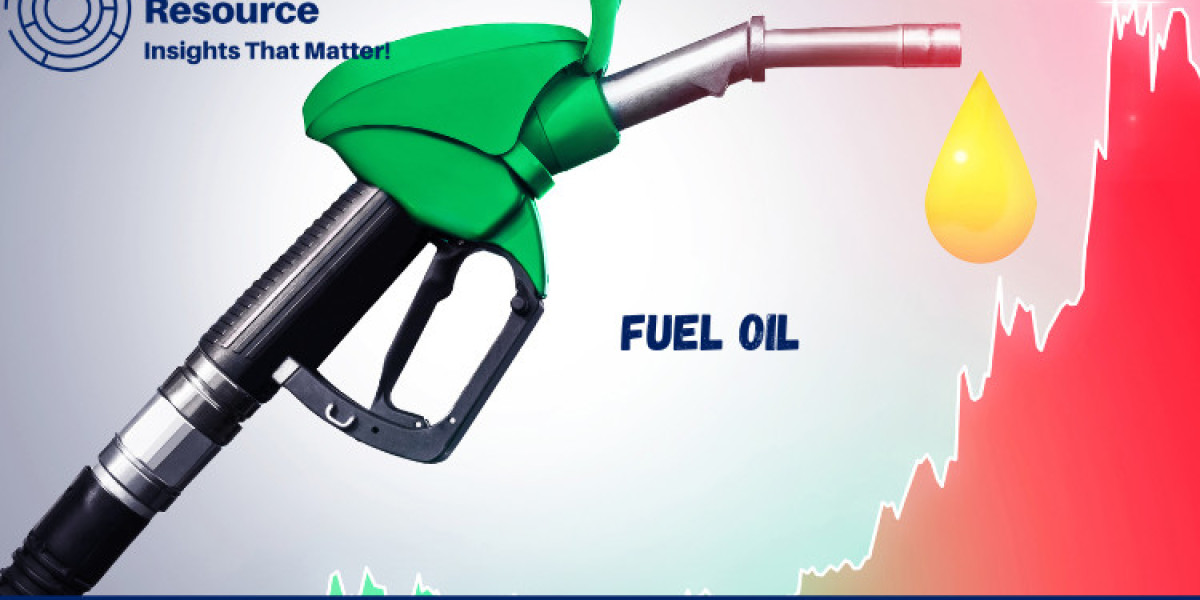Introduction to Fuel Oil Production Cost Analysis
Fuel oil, a vital energy source widely used in industries, transportation, and power generation, plays a central role in global energy supply. With rising energy demands, understanding the Fuel Oil Production Cost is crucial for companies looking to stay competitive. At Procurement Resource, we provide in-depth Fuel Oil Production Cost Reports that break down production expenses, giving companies the insights they need to manage costs effectively and make data-driven decisions.
Why Fuel Oil is Essential
Fuel oil, also known as heavy oil, is a distillate produced through the refining of crude oil. Its applications span from power generation to marine transportation, where it serves as a primary fuel. With continued reliance on fuel oil across various industries, cost management in its production is critical to ensure profitability, especially in a market impacted by price volatility and environmental regulations.
Request a Free Sample for Fuel Oil Production Cost Reports – https://www.procurementresource.com/production-cost-report-store/fuel-oil/request-sample
Understanding the factors influencing production costs empowers companies to better control expenses and adapt to changing market conditions.
Key Components of Fuel Oil Production Cost
Fuel oil production involves multiple cost factors, including raw materials, refining processes, energy usage, labor, and compliance with environmental regulations. Breaking down these components provides a detailed view of production expenses and potential areas for cost optimization. Below are the main cost drivers in fuel oil production.
1. Raw Material Costs
Fuel oil is derived from Crude Oil, a raw material whose price is heavily influenced by global market conditions, geopolitical events, and supply chain disruptions. Crude oil prices represent a substantial portion of fuel oil production costs, often fluctuating due to supply-demand dynamics, trade policies, and macroeconomic trends.
Monitoring crude oil prices, securing long-term contracts, and utilizing hedging strategies are essential steps for companies aiming to stabilize raw material expenses and reduce the impact of price volatility on production costs.
2. Refining Process and Processing Efficiency
The refining process converts crude oil into fuel oil, involving steps such as Distillation and Catalytic Cracking to remove impurities and meet industry standards. Refining fuel oil is energy-intensive and requires specialized technology and equipment. The efficiency of these processes directly affects production costs, with optimized operations reducing waste and improving yield.
Read the Full Report – https://www.procurementresource.com/production-cost-report-store/fuel-oil
Investing in advanced refining technologies and continuous process optimization can enhance output efficiency, though initial capital investments and regular maintenance are required to achieve long-term savings.
3. Energy and Utility Costs
Fuel oil production consumes significant energy, including Electricity and Steam for heating, distillation, and catalytic cracking. Energy expenses are directly impacted by global energy prices, and any fluctuation in these prices influences the overall cost of fuel oil production.
By implementing energy-efficient practices or exploring alternative energy sources, companies can manage utility expenses more effectively. Energy management is critical, as it contributes to sustainable production practices and helps mitigate the impact of rising global energy costs.
4. Labor and Operational Costs
Skilled labor is essential for operating the sophisticated equipment and monitoring the processes involved in fuel oil refining. Labor Costs cover wages for technical staff, training, and safety compliance, while Operational Costs include facility maintenance, quality control, and general plant operations.
Optimizing workflows, automating processes where possible, and investing in workforce training can improve efficiency and reduce operational expenses, supporting cost-effective fuel oil production.
5. Technological Advancements and Maintenance
Fuel oil production can benefit significantly from Technological Advancements that enhance refining efficiency, reduce emissions, and improve product quality. Implementing new technologies often involves initial capital investment, but the long-term benefits of higher output and lower operational costs can offset these expenses. Regular Maintenance is also essential to prevent downtime and ensure continuous production.
Investing in reliable equipment and preventive maintenance programs minimizes unexpected costs, making production more efficient. Technological advancements in automation, monitoring, and refining can contribute to more sustainable production practices and reduced expenses.
6. Environmental and Regulatory Compliance
Fuel oil production involves strict Environmental Regulations to control emissions and waste management, especially given the focus on reducing greenhouse gases. Compliance costs include investments in emission control, waste treatment, and carbon offset initiatives. Failure to meet these standards could result in fines or legal repercussions, impacting overall production costs.
Ask an Analyst – https://www.procurementresource.com/production-cost-report-store/fuel-oil/ask-an-analyst
While compliance can increase production expenses, investing in sustainable practices aligns companies with regulatory standards and promotes a positive brand image, which is increasingly valued by consumers and investors.
How Procurement Resource’s Fuel Oil Production Cost Reports Can Help
At Procurement Resource, we deliver comprehensive Fuel Oil Production Cost Reports that provide a detailed view of production costs and help companies identify cost-saving opportunities. Our reports offer insights into each component of fuel oil production costs, supporting data-driven decisions for optimized production. Here’s what you can expect from our reports:
Detailed Cost Breakdown: From crude oil and energy to labor, operational expenses, and regulatory compliance, our reports cover every factor that impacts fuel oil production costs.
Real-Time Data and Forecasts: With the fuel market constantly evolving, our reports include up-to-date data and forecasts to help you make strategic decisions based on current market trends.
Price Trends and Analysis: We analyze crude oil and energy price trends to support cost planning, helping you anticipate changes in production expenses and adjust budgets accordingly.
Benchmarking and Comparison: Compare your production costs with industry standards to identify areas for improvement. Our benchmarking tools help companies assess their efficiency and make adjustments as needed.
Procurement Strategies: We provide practical procurement insights to help you manage raw material supply chains effectively, ensuring a reliable and cost-effective source of crude oil.
Gaining a Competitive Edge with Procurement Resource’s Reports
With Procurement Resource’s Fuel Oil Production Cost Reports, companies gain access to insights that support cost optimization and help them navigate the fuel market confidently. Our reports go beyond basic data to offer recommendations for improving efficiency, reducing production costs, and ensuring regulatory compliance.
Each report is tailored to meet the specific needs of our clients, recognizing that every company faces unique challenges. Whether your focus is on cost reduction, process optimization, or sustainable practices, our expert analysts work with you to support your objectives.
Stay Ahead of Market Trends with Procurement Resource
The demand for fuel oil remains steady as it supports power generation, transportation, and industrial operations worldwide. By partnering with Procurement Resource, companies gain access to market intelligence that keeps them informed of industry trends and helps them adapt to changing conditions. Our Fuel Oil Production Cost Reports streamline procurement, enhance supply chain management, and provide actionable insights for decision-making.
Our team of analysts closely monitors the latest data to identify key trends impacting fuel oil production costs. Staying informed on these trends enables companies to adapt, optimize production, and make strategic choices that align with market dynamics.
Request Your Free Sample Report Today
If you’re ready to optimize your fuel oil production costs, we invite you to request a free sample report from Procurement Resource. Our reports provide the knowledge and tools needed to streamline operations, control expenses, and succeed in a competitive industry.
Request Your Free Sample – https://www.procurementresource.com/production-cost-report-store/fuel-oil/request-sample
Contact Us
Company Name: Procurement Resource
Contact Person: Amanda Williams
Email:sales@procurementresource.com
Toll-Free Numbers:
USA copyright: 1 307 363 1045
UK: 44 7537171117
Asia-Pacific(APAC): 91 1203185500
Address: 30 North Gould Street, Sheridan, WY 82801, USA






